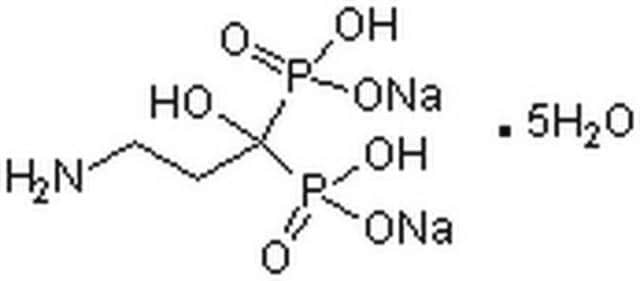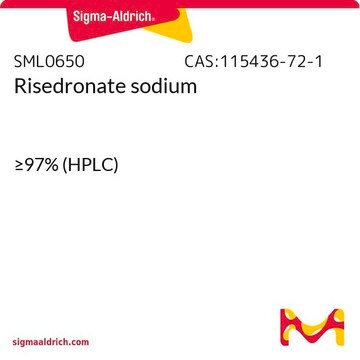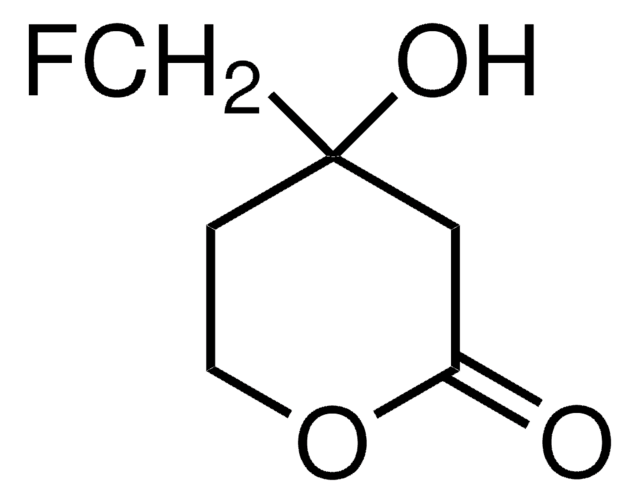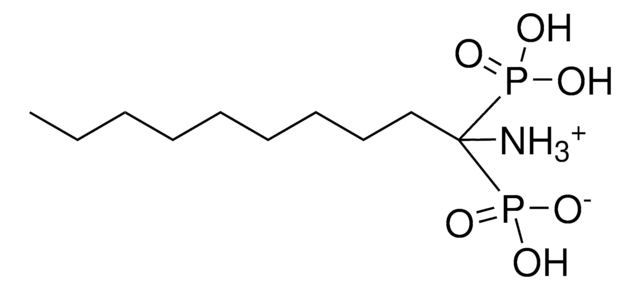P2371
Pamidronate disodium salt hydrate
≥95% (NMR), solid
Synonym(s):
3-Amino-1-hydroxy-1-phosphonopropanephosphonic acid disodium salt hydrate
About This Item
Recommended Products
Quality Level
Assay
≥95% (NMR)
form
solid
color
white
mp
300 °C
solubility
H2O: 28 mg/mL
originator
Novartis
storage temp.
2-8°C
SMILES string
O.[Na+].[Na+].NCCC(O)(P(O)([O-])=O)P(O)([O-])=O
InChI
1S/C3H11NO7P2.2Na.H2O/c4-2-1-3(5,12(6,7)8)13(9,10)11;;;/h5H,1-2,4H2,(H2,6,7,8)(H2,9,10,11);;;1H2/q;2*+1;/p-2
InChI key
TVQNUQCYOOJTMK-UHFFFAOYSA-L
Biochem/physiol Actions
Features and Benefits
Signal Word
Warning
Hazard Statements
Precautionary Statements
Hazard Classifications
Acute Tox. 4 Oral
Storage Class Code
11 - Combustible Solids
WGK
WGK 3
Flash Point(F)
Not applicable
Flash Point(C)
Not applicable
Personal Protective Equipment
Certificates of Analysis (COA)
Search for Certificates of Analysis (COA) by entering the products Lot/Batch Number. Lot and Batch Numbers can be found on a product’s label following the words ‘Lot’ or ‘Batch’.
Already Own This Product?
Find documentation for the products that you have recently purchased in the Document Library.
Customers Also Viewed
Articles
Cyclic nucleotides like cAMP modulate cell function via PKA activation and ion channels.
Cyclic nucleotides like cAMP modulate cell function via PKA activation and ion channels.
Cyclic nucleotides like cAMP modulate cell function via PKA activation and ion channels.
Cyclic nucleotides like cAMP modulate cell function via PKA activation and ion channels.
Our team of scientists has experience in all areas of research including Life Science, Material Science, Chemical Synthesis, Chromatography, Analytical and many others.
Contact Technical Service












